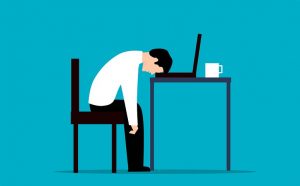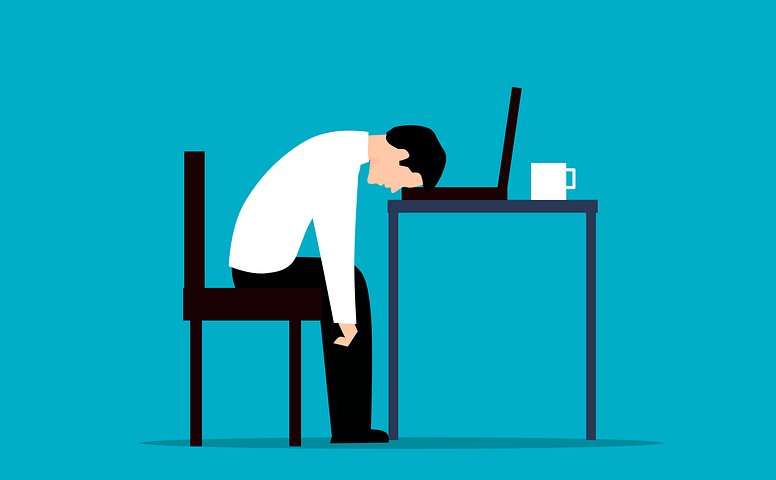For too many employees across the globe, their workplace could be having huge implications on their overall health and wellbeing. Prior to the COVID-19 outbreak, workplaces were often full of stressed out and overworked employees, which then contributed to poor work performance and overall feelings of health and wellbeing.
Whilst physical health has been a topic of conversation for many years, in recent times, mental health and wellbeing have taken centre stage, and rightfully so, but it’s important to recognise that workplaces could be the driving force behind some employee’s mental wellness and physical health.
As many of us begin returning to the office again following the pandemic, employers are under more pressure than ever before to keep their employees safe and healthy, with many utilising added steps and implementing more procedures to look after their employees. But, it is important to remember that there are other ways in which your workplace can affect your overall health. With this in mind, here are some ways that your workplace could be impacting your health,
Lack of physical activity
If your job is predominantly desk-based, then you’ll already be aware that this means you spend a large portion of your day sitting at your desk and not moving around much. Prolonged periods of sitting has links to putting us at higher risk of developing illnesses and diseases such as heart disease, depression, obesity and cancer, as well as issues with our posture which then goes on to cause problems with back, shoulder and neck pain. Check and see if your workplace offers desk assessment or has an allowance for new office furniture as you may need to look at getting a new alternative, such as a standing desk or posture office chair.
As well as this, look at getting up at least once every hour, even if you just spend 5 minutes walking and talking on the phone, or doing the drink run for everyone. Try and get your body moving as much as possible – you could even take a quick walk during your dinner or during your break.
You have a long commute
Sadly, commuting is an unavoidable part of most peoples day to day lives, as it isn’t always possible to live close enough to your workplace in order to avoid a lengthy commute. A recent study found that those employees whose commute was longer than 30 minutes each way reported higher stress and anxiety levels than those with shorter or no commutes. Finding a job closer to home is a highly unlikely solution, so there are some ways that you can transform your lengthy commute to make it less stressful and use it to your advantage:
- Avoid replying to emails or doing work on your way to and from work, as this will only increase your stress levels and means you are taking work home with you.
- If you can, why not walk to and from work, or even get off a stop or two earlier so that you’re moving your body and getting some exercise in – it’s also a great way to destress and decompress before you get home or arrive at work.
- Why not use this time to listen to some music, catch up on your favourite podcast or even listen to an audiobook?

Work is keeping you awake at night
Whilst we all know that lack of sleep can affect our work performance and productivity, your work can actually impact your sleep pattern, causing a recurring cycle to form. On average, adults require around 7-8 hours of sleep per night (this does differ from person to person), but stress can interfere with your sleep pattern, causing problems with both your physical and mental wellbeing.
If you find yourself regularly waking up during the night, or you struggle to get to sleep or wake up, then it may be that stress is impacting your sleep schedule. If this is the case, then try to establish a proper night routine, avoiding phone and device time for the hour before you plan to sleep, not drinking caffeine past 4 pm and having a shower or bath before getting into bed. Sleep doesn’t only cause issues with our mental wellbeing, but it can also have impacts on our digestive system, skin and moods. It’s important that you also try and identify the potential stress triggers at work and aim to resolve them the best way you can. You can read about some best ways to sleep better at night.
Workplace cleanliness
If you find yourself feeling overwhelmed at work, then your workplace could be playing a huge role in this. Workplace clutter and mess can reflect in your mental wellbeing and make your brain feel more cluttered, so if this is the case, try to organise your workspace and make your desk and surrounding areas a clutter free zone.
In terms of workplace cleanliness, try to work together with your team and coworkers to create a space that is nice for you all to work in. Ensure communal areas are kept clean and tidy and well presented for any clients or customers visiting and carry out regular checks on spaces such as the kitchen and toilets/restrooms. If your workplace seems to be a challenge to keep tidy, or if you want to carry out regular deep cleans and sanitations following the pandemic, then specialist cleaning companies can provide this.








